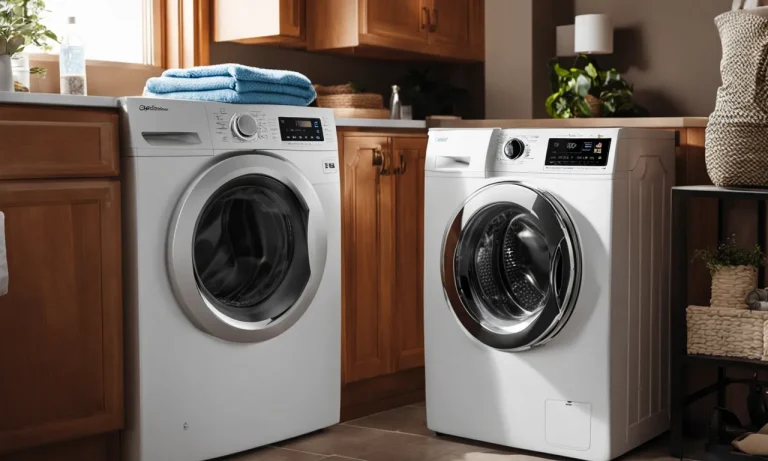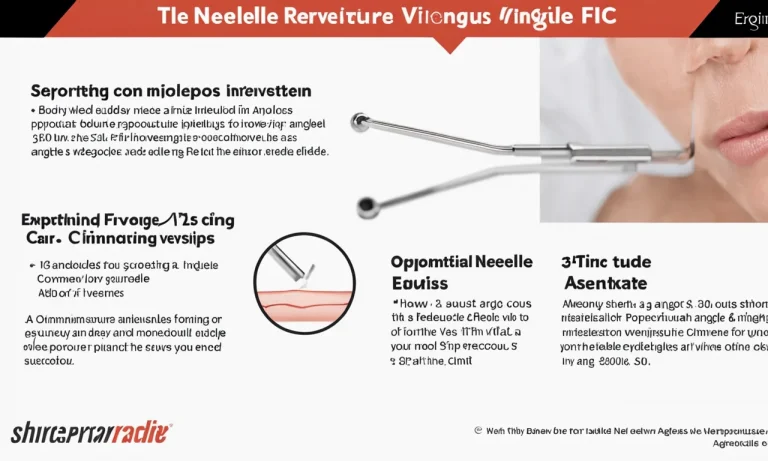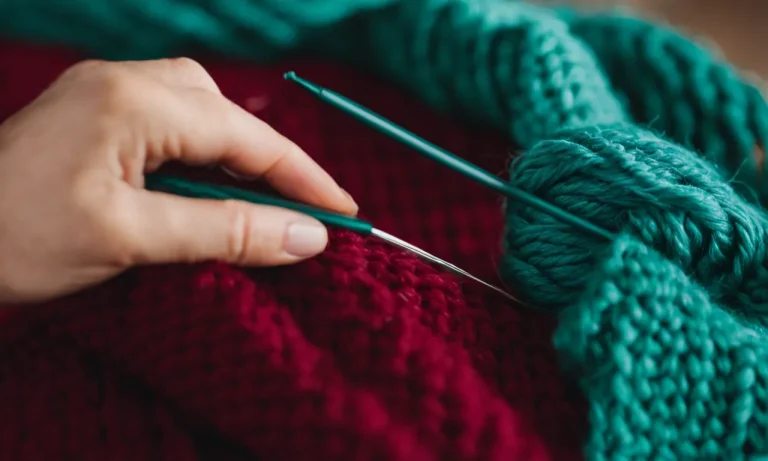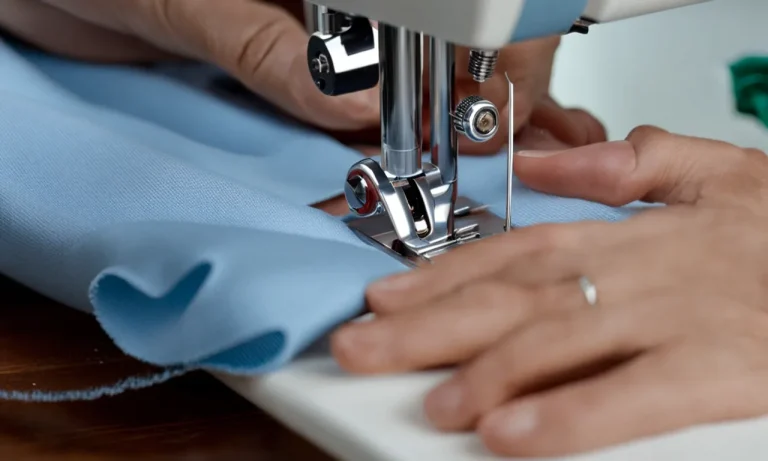Do You Really Need Fabric Softener?
Fabric softener is one of those laundry products that seems indispensable at first, but start asking around and you’ll find tons of people who have kicked the habit. If you’re wondering whether fabric softener is really necessary or just an overpriced luxury, read on to learn the pros and cons so you can decide for yourself.
If you’re short on time, here’s the quick answer: You don’t need fabric softener, but it does have some benefits like reducing static and keeping clothes from feeling stiff. Just beware that some ingredients may cause buildup on clothes over time.
What Does Fabric Softener Do?
Fabric softener is a popular laundry product that many people use to enhance the feel and scent of their clothes. But what exactly does fabric softener do? Let’s explore its main functions:
Reduces static
One of the primary benefits of fabric softener is its ability to reduce static cling in clothing. Static electricity can make your clothes stick together, causing discomfort and frustration. Fabric softener works by coating the fibers in your garments, reducing the static charge and preventing clothes from sticking to each other or to your body.
This makes it easier to wear and handle your clothes without any annoying static shocks.
Softens fabrics
Another key role of fabric softener is to soften your clothes. It works by lubricating the fibers in the fabric, making them feel smoother and more comfortable against your skin. This can be especially beneficial for fabrics that tend to be rough or stiff, such as towels or denim.
By using fabric softener, you can enjoy the luxurious feeling of soft and cozy garments.
Smells nice
One of the most noticeable effects of fabric softener is the pleasant scent it imparts to your laundry. Fabric softeners come in a wide range of fragrances, from floral to fruity to fresh linen. These fragrances can linger on your clothes, giving them a pleasant and inviting smell.
If you enjoy the experience of freshly scented laundry, fabric softener can be a great addition to your laundry routine.
It’s important to note that while fabric softener offers these benefits, it may not be necessary for everyone. Some people may have sensitive skin or allergies to the chemicals found in fabric softeners.
In such cases, it’s best to opt for alternative methods of achieving softness and scent, such as using dryer balls or adding a cup of white vinegar to the rinse cycle.
So, do you really need fabric softener? It ultimately depends on your personal preferences and needs. If you enjoy the added softness, reduced static, and pleasant scent, fabric softener can be a wonderful addition to your laundry routine.
However, if you prefer a more natural approach or have sensitivities, there are alternative options available that can still help you achieve great results.
Downsides of Fabric Softener
Leaves residue on clothes
One of the main downsides of using fabric softener is that it can leave a residue on your clothes. This residue can make your clothes feel greasy or sticky, and it can also attract dirt and other particles, making your clothes look dull and dirty.
It can be frustrating to spend time and money on laundry, only to have your clothes come out looking worse than before.
Can irritate sensitive skin
Another downside of fabric softener is that it can irritate sensitive skin. The chemicals and artificial fragrances in fabric softener can cause allergic reactions, itching, and irritation for people with sensitive skin.
This can be particularly problematic for those who already have skin conditions like eczema or dermatitis. It’s important to consider the potential impact on your skin before using fabric softener.
Harsh chemicals and artificial fragrances
Fabric softeners often contain harsh chemicals and artificial fragrances. These chemicals can be harmful to both your health and the environment. Some of the chemicals used in fabric softeners have been linked to respiratory issues and other health problems.
Additionally, the artificial fragrances can be overpowering and may cause headaches or other negative reactions for some individuals.
Not eco-friendly
Fabric softener is not considered to be eco-friendly. Many fabric softeners contain ingredients that are not biodegradable and can contribute to water pollution. Additionally, the production and disposal of fabric softener often have a negative impact on the environment.
If you’re looking to reduce your carbon footprint and make more sustainable choices, fabric softener may not be the best option.
When to Use Fabric Softener
For towels and sheets
If you want your towels and sheets to feel soft and fluffy, using fabric softener is a great idea. Fabric softener works by coating the fibers of the fabric, making them smoother and reducing friction. This helps to prevent static cling and gives your towels and sheets a luxurious feel.
Plus, fabric softener can also help to reduce wrinkles, making your towels and sheets easier to iron.
Delicate fabrics like wool and silk
When it comes to delicate fabrics like wool and silk, fabric softener can be a lifesaver. These fabrics are prone to becoming stiff and losing their softness over time. Using fabric softener can help to restore and maintain the softness of these fabrics, making them more comfortable to wear.
Just make sure to use a gentle fabric softener specifically designed for delicate fabrics to avoid any damage.
If you live in a dry climate
Living in a dry climate can take a toll on your clothes. Dry air can cause fabrics to become stiff and rough, making them less comfortable to wear. Fabric softener can help to counteract the effects of dry air by adding moisture and softness back into your clothes.
It can also help to reduce static cling, which can be particularly problematic in dry climates. So, if you live in an area with low humidity, fabric softener can be a game-changer for your laundry routine.
Alternatives to Fabric Softener
Add vinegar to the rinse cycle
One alternative to fabric softener is adding vinegar to the rinse cycle of your laundry. Vinegar is a natural and cost-effective option that can help soften your clothes. Simply add half a cup of white vinegar to the rinse cycle, and let it do its magic.
Not only does vinegar help to soften fabrics, but it can also remove odors and reduce static cling. It’s a great option for those who prefer a more natural approach to laundry care.
According to a study conducted by The National Center for Biotechnology Information, vinegar can help to remove mineral deposits and detergent residue from clothing, leaving them feeling soft and fresh. So, next time you run out of fabric softener, give vinegar a try.
Use dryer balls
Dryer balls are another great alternative to fabric softener. These small, rubber or wool balls are placed in the dryer with your clothes, and they help to soften fabrics and reduce static cling. As the dryer balls bounce around, they help to separate and fluff up the laundry, allowing air to circulate more efficiently.
This not only helps to soften the clothes but also reduces drying time, saving you energy and money.
A study conducted by Consumer Reports found that using dryer balls can reduce drying time by up to 25%. They are a reusable and eco-friendly option that can be a great addition to your laundry routine.
Skip the dryer and air dry
If you’re looking for a completely natural alternative to fabric softener, consider air drying your clothes. Hanging your laundry outside or using a drying rack indoors allows the fabrics to naturally soften as they dry.
The gentle breeze and sunlight can help to remove moisture and leave your clothes feeling soft and fresh.
Not only is air drying a cost-effective option, but it also helps to preserve the lifespan of your clothes. The heat from the dryer can cause fabrics to shrink or become damaged over time. By opting for air drying, you can extend the life of your garments while still achieving soft and comfortable results.
So, the next time you find yourself questioning whether you really need fabric softener, consider these alternatives. Whether you choose to add vinegar to the rinse cycle, use dryer balls, or air dry your clothes, you can achieve soft and fresh results without relying on traditional fabric softeners.
Give these alternatives a try and see which one works best for you!
Read the Label Carefully
When it comes to choosing fabric softeners, it is important to pay attention to the label and understand what ingredients are used in the product. Many fabric softeners on the market contain harmful chemicals that can be detrimental to your health and the environment.
By reading the label carefully, you can make an informed decision and choose a fabric softener that is safe and effective.
Avoid products with phthalates and artificial fragrances
Phthalates are a group of chemicals commonly used in fabric softeners to create a long-lasting fragrance. However, research has shown that phthalates can disrupt hormones in the body and may have negative effects on reproductive health.
Artificial fragrances, on the other hand, can cause allergic reactions and irritate sensitive skin. When reading the label, look for fabric softeners that are phthalate-free and use natural fragrances derived from essential oils.
According to the Environmental Working Group (EWG), some fabric softeners contain toxic chemicals that have been linked to asthma, allergies, and even cancer. By avoiding products with phthalates and artificial fragrances, you can reduce your exposure to these harmful substances and protect your health.
Choose plant-based, eco-friendly brands
Instead of opting for traditional fabric softeners, consider choosing plant-based, eco-friendly brands. These products are made from natural ingredients derived from plants, such as soy or coconut oil.
They are free from harmful chemicals and are biodegradable, making them safer for both your family and the environment.
Eco-friendly fabric softeners not only soften your clothes but also leave a subtle, refreshing scent that is derived from natural sources. They are also gentle on sensitive skin, making them a great option for individuals with allergies or skin sensitivities.
When looking for eco-friendly fabric softeners, look for certifications such as USDA Organic or EcoLogo. These certifications ensure that the product meets strict environmental standards and is made from renewable resources.
By choosing plant-based, eco-friendly fabric softeners, you are not only taking care of your family’s health but also contributing to a greener and more sustainable future.
Conclusion
As you can see, fabric softener isn’t completely useless, but it’s also not a must-have. Evaluate your laundry habits and needs to decide if it’s worthwhile for you. Look for plant-based, eco-friendly brands and use it sparingly on things like sheets and towels where softness is paramount.
Skip the chemicals and stick to natural alternatives like vinegar or dryer balls for everyday loads. Your clothes will thank you!







